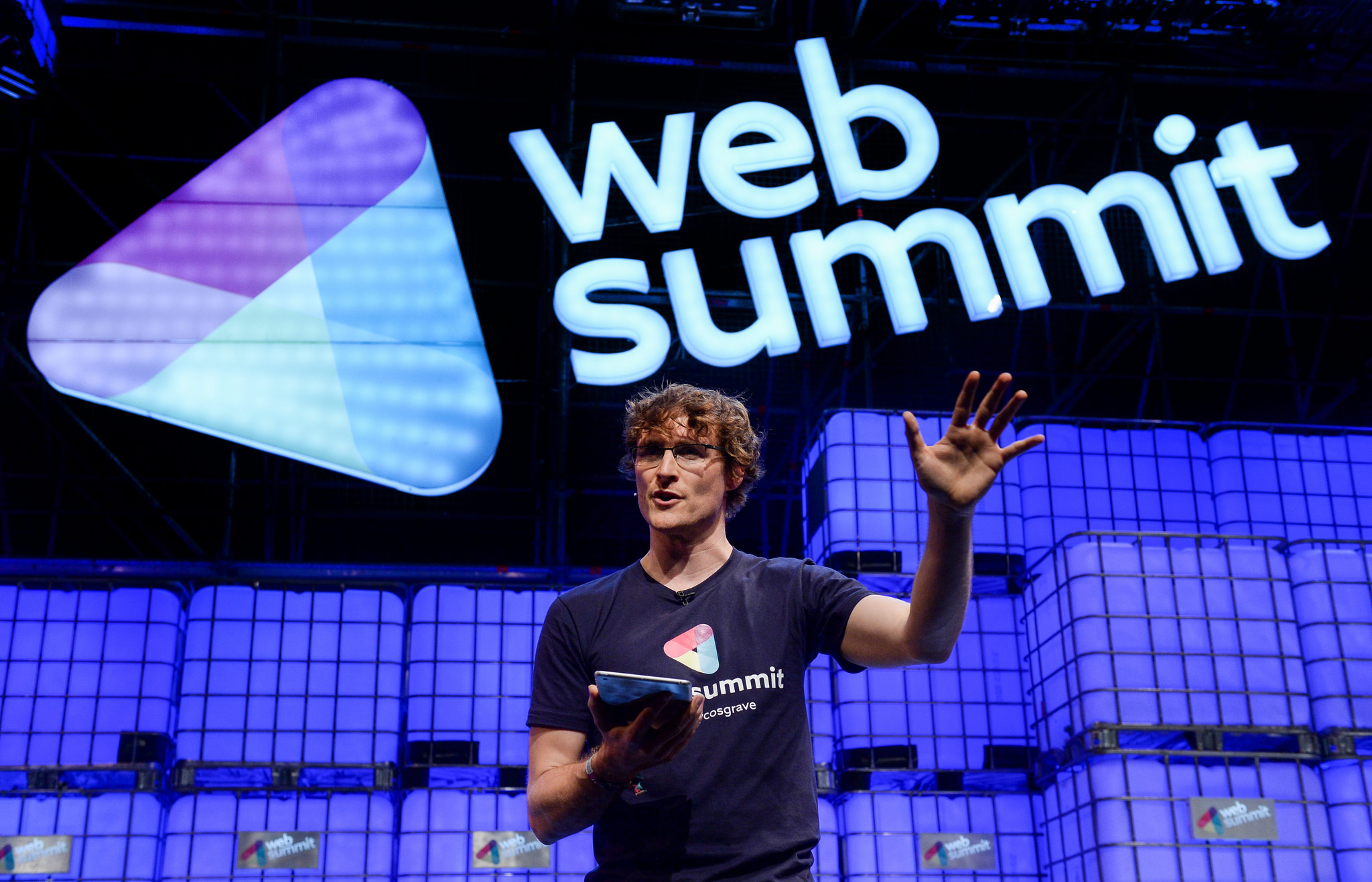During my three days in Dublin, at Web Summit, really worth, I did so many things, met many people and many international and Italian startups. The event was really huge, you have to attend in a well organized way, as I wrote here, if you don’t want to go round as child at the carnival, but inefficiently. Some numbers (official source) can reveal what a “big” deal has become Web Summit, the largest Tech Conference in Europe. . 120,000 tweets published · 2,200 people working at the Web Summit · Over 700 investors and VCs · 1324 journalists from 70 different countries · 22,000 attendees from 109 countries · 86% from overseas · 614 speakers · 2,160 exhibiting startups (93 italian !) · 42 kilometres of cable runs · 82,000 Coffees served · 8,700 hotel rooms booked · 4 days – how long it took to erect the bridge · 1,293 wired connections · 7800 SQMs marquees · 87 number of venues used across Dublin · 4,500 people each day at Centre Stage · 9 stages and one cinema
Impress? Definitely, Web Summit is a must to be conference if you are involved in a startup, in the tech business or you are an investor. (some interestings considerations in this article). Here below a selection of the Italian startups (among 93) that impressed me. The first Italian startup that really hit my geek soul is Mailcoding, they have the mission to facilitate personale data exchange in the world. Ask yourself: have you ever had problems while spelling by phone your email to another person or trying to understand his/hers? If the answer is yes, you have to know your are not alone, statistics report around 3 billions emails per day not delivered because their address is typed wrong. That’s because an email address is usually composed by alphanumeric strings, not always clear and understandable: excessive length, words never heard before, similarity with other addresses, etc. Mailcoding can provide you a simple numeric code, easier to spell, easier to understand. The Mailcoding vision is to become a standard for one’s virtual identity introduction. Mailcoding is a web-based service that allows people to obtain a numerical string which is uniquely associated with the contact information that anyone wants to share with other people. A “Mailcode” can be queried by anybody to retrieve such contact information: e-mail address, social media profiles, website name, etc.
I loved MyAngelCare, a NFC bracelet containing the access key to your first aid information : in case of need such info can easily be displayed in a smartphone just tapping the bracelet. Really interesting GoodBarber, is a app builder for non-programmers. Easy graphical and friendly interface . You can create app native for Android, Ios for the other systems is HTML . The app is developed in five languages : italian, spanish, german, french, portuguese. Winezon is the first wine marketplace where the customer can buy directly from the wineries. The delivery is in 48 hour . CrowdChicken is a startup which a service that allow everyone to create their own crowdfunding platform. Their mission is doing for crowdfunding what WordPress did for blogging and Shopify for e-commerce. Splitci is an app that helps people to track down shared expenses. They are developing a payment system to allow users to directly pay back friends and settle up their balances. In the meantime, they are developing a “mini-social network” built around transactions that proactively learns from purchasing habits and leads people to the right direction. Needle is the first mobile social network for vinyl record lovers and insiders. With the rise of streaming services like Spotify, we are losing our individual musical identities and the tactile aspect of music. Needle is a tool that want help the users to express their musical identity, discover new music and trade on the market with other Lovers, Record Labels and Record Stores. Fazland is a cross-device platform offering customers a simple and intuitive way to receive and compare quotes for house services, while competitive tradesmen can get in contact with new customers without any fix costs leveraging internet and mobile technologies. Regarding the startup contest, this year the competition saw over 1,500 entries, 200 of which were shortlisted from over thirty countries around the world. The winners were selected after three days of intense competition. Portuguese company Codacy won the much sought after BETA award for their start-up which operates a platform of code patterns designed to complement unit tests, seeking to make software development more efficient by living in the code reality. BaseStone, from the UK, won the ALPHA Award for their company, which aims to streamline communication and speed up the design review process. The winners were chosen from a shortlist of 200 finalists after three days of intense pitching in front of thousands of people, including the world’s foremost technology leaders and prospective investors. Judges of this year’s competition included some of the most influential tech leaders and investors from across the globe, including John O’Farrell of Andreessen Horowitz and Alfred Lin of Sequoia. Contributor: Andrea Romoli, @androm
© RIPRODUZIONE RISERVATA
